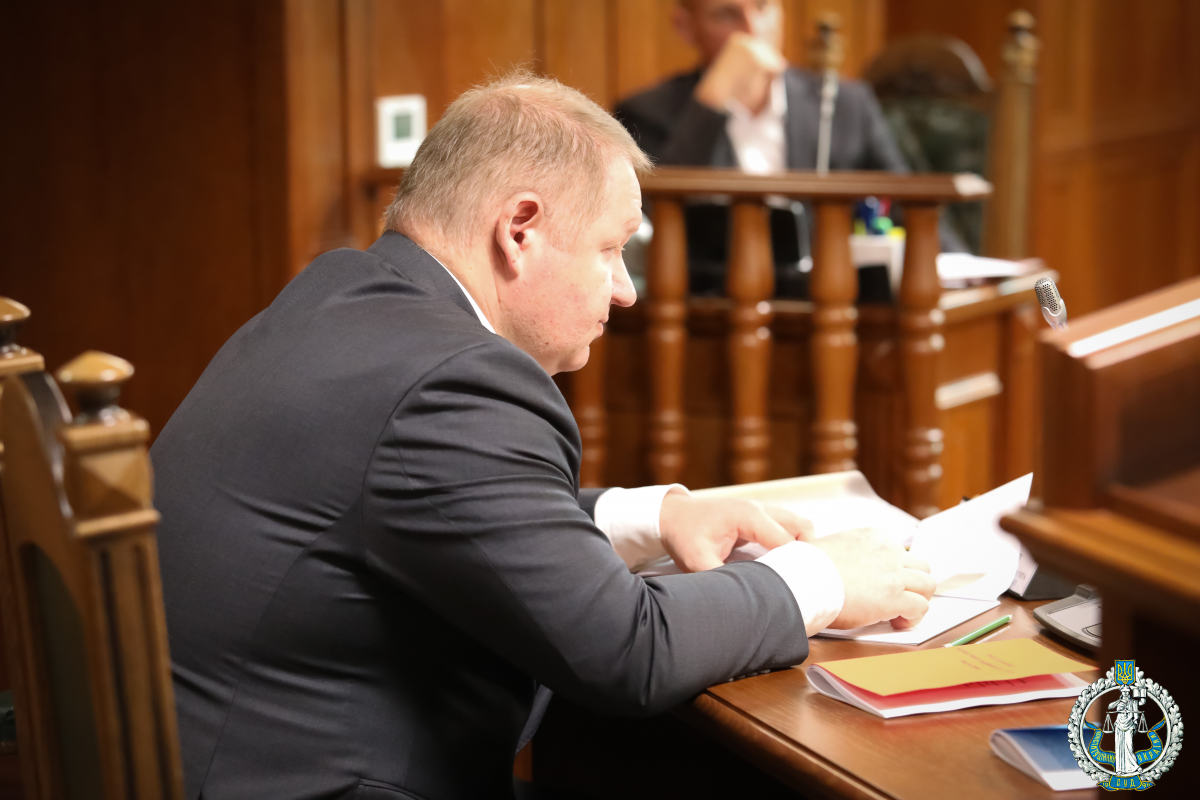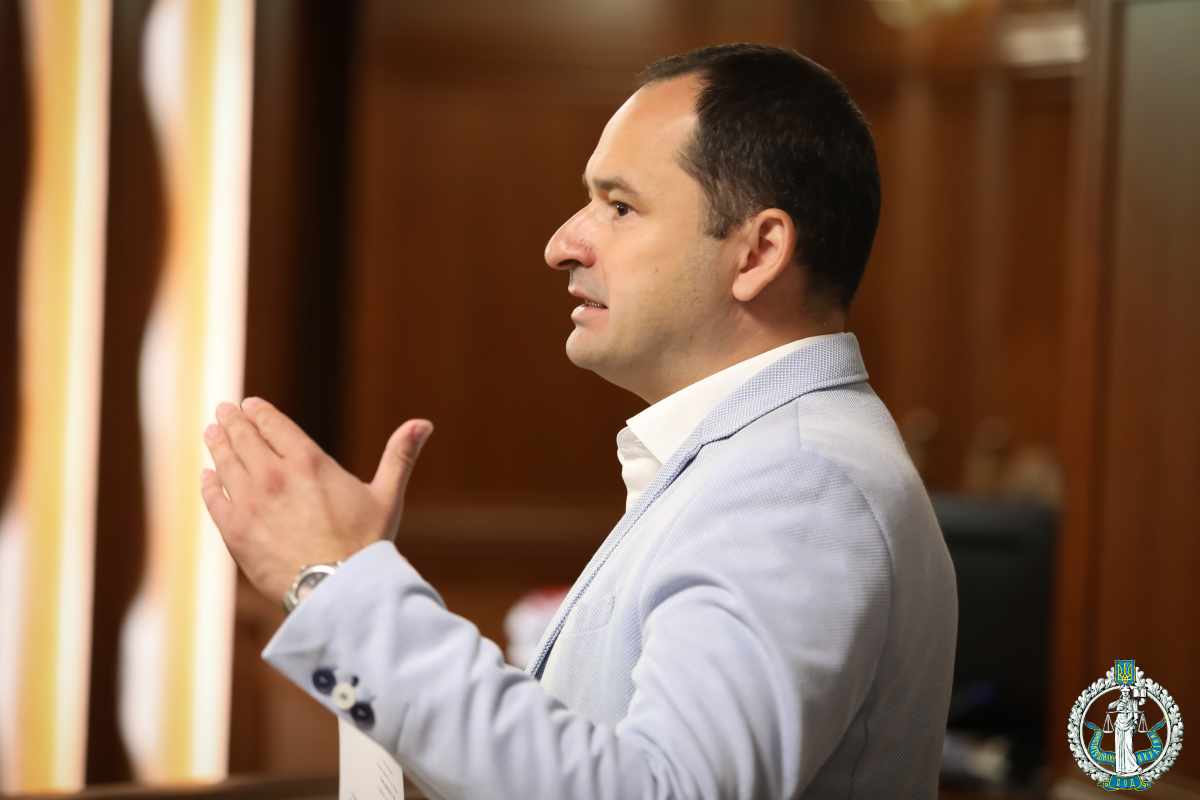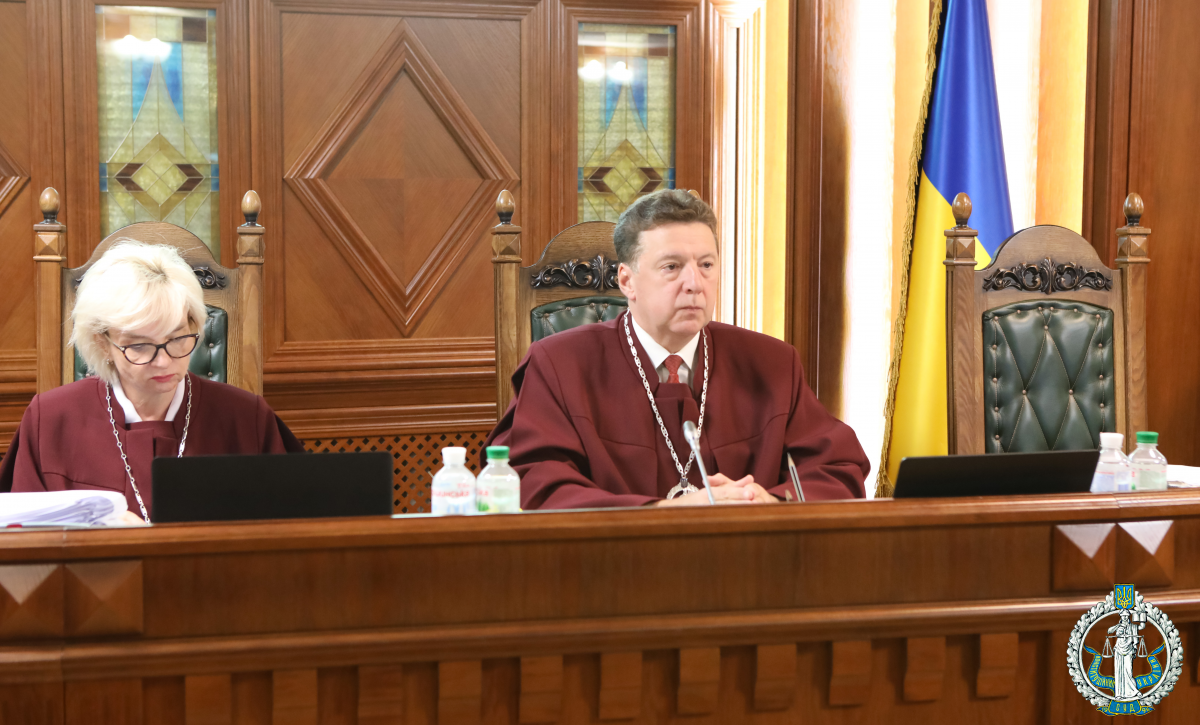On September 13, 2023, the Second Senate of the Constitutional Court of Ukraine, at the public part of the plenary session, considered the case upon the constitutional complaint of Serhii Bychkov regarding the constitutionality of Article 176.6 of the Criminal Procedure Code of Ukraine (hereinafter referred to as the Code).
During the plenary session, the Judge-Rapporteur in the case, Viktor Gorodovenko, noted that the complainant had applied to the Constitutional Court of Ukraine with a request to verify the constitutionality of Article 176.6 of the Code, according to which „during the martial law, persons who are suspected or accused of committing crimes under Articles 109-1142, 258-2586, 260, 261, 437-442 of the Criminal Code of Ukraine, provided that there are risks referred to in Article 177 of this Code, the preventive measure specified in paragraph 5 of part one of this Article shall be applied‟.
According to the content of the constitutional complaint and the materials attached to it, the following can be observed.
The complainant was notified of being suspected of a crime under Article 27.2 and Article 1141.2 of the Criminal Code of Ukraine, „namely, interference with the lawful activities of the Armed Forces of Ukraine and other military formations, which led to the death of people or other serious consequences, with the prior conspiracy of a group of persons“.
The investigating judge of the court of first instance, in a Ruling dated March 9, 2023, imposed a pre-trial restraint on the suspect, Serhii Bychkov, in the form of detention until May 7, 2023. The court of appeal has upheld this decision.
The author of the complaint recognises that the purpose of Article 176.6 of the Code „is to prevent persons suspected of crimes against national and public security from hiding from investigation and trial, which is extremely important during martial law‟, and notes that according to the case law of the European Court of Human Rights „certain guarantees of fundamental human rights and freedoms enshrined in the Convention... may be narrowed down given the degree of public danger of a particular category of crimes, in particular terrorism. At the same time, it is important that the imposition of a lower threshold for these guarantees does not encroach on the very essence of human rights and freedoms, thereby depriving them of their value‟.
The complainant claims that Article 176.6 of the Code does not comply with the provisions of Article 29 of the Constitution of Ukraine, since „the presumption is in fact established that the presence of suspicion of certain crimes necessitates the exclusive application of a preventive measure in the form of detention without the right to apply another preventive measure“. In his opinion, „this approach is discriminatory, as it puts persons subject to such a measure of restraint in unequal conditions compared to those suspected or accused of committing other crimes of a similar gravity“.
In addition, the complainant argues that the impugned provision of the Code „significantly narrows the scope of the right of suspects to be released during the proceedings, which violates Article 3.2, Articles 8.1 and 8.2, Article 22.3, Article 24.1, Articles 291 and 29.2 of the Constitution of Ukraine“; „and also judicial control over the detention of the above-mentioned category of suspects and accused is excluded, since the court cannot take into account the risks determined by the procedural law that necessitates the application of such an exceptional measure of restraint as detention“.
The subject of the constitutional complaint is convinced that under Article 176.6 of the Code „a suspect or accused person is actually deprived of the right to file a motion for release from custody and application of an alternative measure of restraint, since, being enshrined in the current law, in this category of criminal proceedings such a right, given the prohibition of the application of alternative measures of restraint, is a fiction“.
The Judge-Rapporteur also informed that to ensure a full and objective consideration of the case and to ensure that the Court makes a reasoned decision, he sent requests to a number of state authorities and academic institutions to provide their opinions on the issues raised in the constitutional complaint.
The Second Senate examined the case file in the public part of the plenary session and proceeded to the in-camera part to adopt a Decision.
The plenary session was attended by the representative of the subject of the constitutional complaint, Oleksandr Babich, and the Permanent Representative of the Verkhovna Rada of Ukraine to the Constitutional Court of Ukraine, Maksym Dyrdin.
The plenary session can be viewed on the official website of the Court in the section „Archive of video broadcasts of meetings“.





